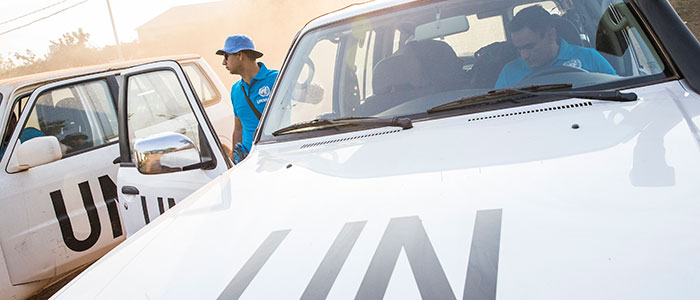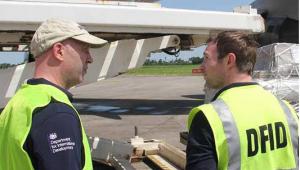UN car convoy aid delivery.jpg

UN vehicles
The examination by MPs found the UK’s Department for International Development is unclear about how taxpayers’ money is spent as a result, and ensuring the department spends public money as effectively as possible will require work within the department and beyond.
The report urged the DFID to use its influence at next month’s World Humanitarian Summit to bring about change in the wider humanitarian system.
Meg Hillier, chair of the PAC, stressed that DFID has a positive impact in its interventions in some of the world’s most desperate situations, including responding to humanitarian crisis at short notice.
But she added it is important government is held to account for how public money is spent whatever the circumstances.
“In responding to crises, achieving value for money means critical support can be provided effectively to more of the people who need it. The taxpayer pound goes further.”
It is therefore vital DFID “looks constantly” at all of its spending. The PAC concluded that currently DFID does not have a full understanding of how much of taxpayers’ funds are spent on what, by what bodies, nor what constitutes success in its crisis interventions – which now make up a sixth of its budget.
MPs noted DFID’s interventions had led to tangible results in some crises, including controlling the Ebola outbreak in Sierra Leone and improving the resilience of thousands of very poor people facing hunger in the Horn of Africa.
However they said that while the department assesses the performance of its interventions in sudden-onset crises, it did not have a good approach for doing so in longer-term, protracted crises such as that of Syria or Yemen.
Earlier this year, the National Audit Office also concluded that DFID’s interventions in protracted crises had not reached the “same level of maturity” as its other interventions.
The PAC highlighted DFID is often not sure how much of taxpayers’ money is spent by which bodies and on what, while the overlapping remits of UN agencies had led to turf wars and impeded effectiveness.
UN agencies received around half of DFID’s £1.3bn humanitarian aid budget in 2014-15. The report called on DFID to use its influence at the first World Humanitarian Summit, sponsored by the UN and taking place in Istanbul next month, to bring about “much-needed change”.
“It is vital [DFID] looks constantly at the way it spends public money and ensures it is being used to best advantage,” said Hillier. “To achieve this will require work both inside the department and beyond.”













